Educational toys are a great way for children to learn while having fun. Building blocks, in particular, have been proven to be beneficial for a child’s development. But these colorful and fun toys are not just for play – there are many valuable skills that a child can learn from building blocks.
Building blocks shape a child’s formative years, building the foundation for a range of skills that will be important throughout their lives. So, what exactly does a child learn from these toys? In this article, we will explore how they contribute to a child’s growth and development.
Key Takeaways:
- Building blocks help develop fine motor skills and hand-eye coordination.
- Play with blocks encourages problem-solving and critical thinking skills.
- Children can learn about colors, shapes, and spatial awareness through building blocks.
- Building blocks assist in the development of spatial awareness and STEM concepts.
In This Article
Types of building blocks
Playing with blocks can take many forms, and there are several different types of building blocks available. Some popular examples include:
- Wooden Blocks: These are the traditional type of building blocks. Playing with wooden blocks can engage young children in creating structures, helping to develop their spatial awareness.
- Plastic Interlocking Blocks: Popular brands like LEGO fall into this category. These blocks help children understand the concept of interconnection and are usually more detailed, allowing for open-ended creations.
- Foam Blocks: These are soft, lightweight, and safe for younger children. They engage kids in play while reducing the risk of injury from falling or thrown blocks.
- Magnetic Blocks: These blocks stick together using magnets, offering a unique way to build. They help children explore the principles of magnetism while also engaging them in creative play.
- Architectural Blocks: These include blocks shaped like specific architectural elements such as columns, arches, and beams. They help children to create more complex structures, encouraging open-ended play.
- Alphabet and Number Blocks: These blocks have numbers or letters on their sides, serving a dual purpose of building and introducing young children to alphabets and numbers.
- Castle building blocks: This structured block play set allows children to build castles and forts, encouraging imaginative play.
What will your children learn from building blocks?
Building blocks offer a wide range of benefits for child development. Some of the skills that children can learn from playing with them include:
1. Cognitive Development from Building Blocks
Playing with building blocks can greatly enhance a child’s cognitive development. As they manipulate the blocks to build structures, children are actively engaging their minds and developing skills such as:
- Exploring the Concept of Cause and Effect: Block play allows children to understand the principle of cause and effect. When children stack blocks and see them tumble, they learn about balance and stability, gaining a basic understanding of physics principles.
- Enhancing Problem-Solving Skills: Using blocks as construction toys enhances problem-solving skills in children. They strategize to build structures, determining block placement, balance, and preventing collapse. This process develops critical thinking and planning abilities.
- Learning to Recognize Shapes and Colors: Building blocks come in different shapes and colors, helping children categorize these visual features. Over time, this helps improve their visual recognition skills, which is crucial for early education.
- Understanding Spatial Relationships: As they maneuver different shaped blocks and fit them together, they learn about concepts like ‘over’, ‘under’, ‘near’, ‘far’, ‘in’, and ‘out’. They understand size, space, and direction, which are key to geometry.
2. Physical Development from Building Blocks
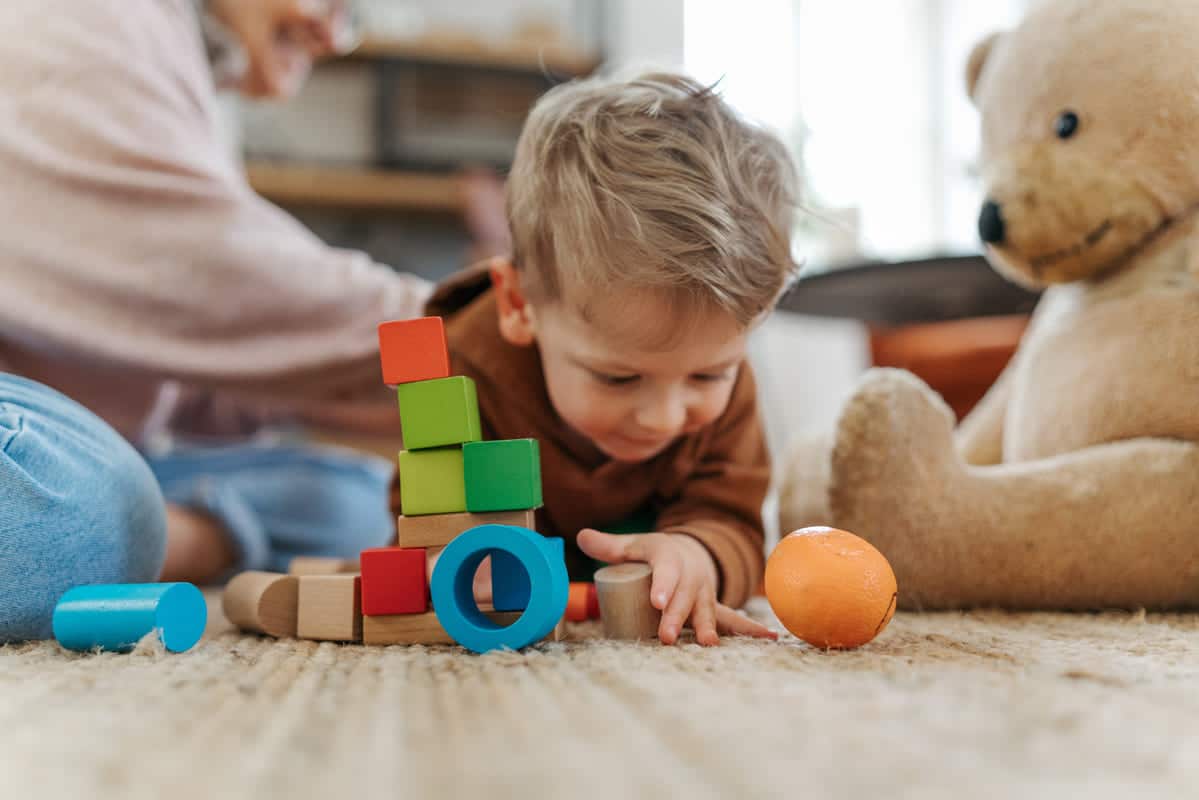
Playing with building blocks also has a significant impact on a child’s physical development. Some of the skills they can learn through block play include:
- Fine Motor Skills: Children develop their fine motor skills as they grasp, hold, and manipulate the blocks with their fingers. Block-play children are better at handling small objects as they develop their finger dexterity.
- Hand-Eye Coordination: Building block structures requires precise hand movements and coordination, which helps develop hand-eye coordination in children.
- Improving Dexterity: As children stacking blocks, they are working on their dexterity. They learn to position the blocks with precision, which is essential for activities like writing and drawing.
3. Social and Emotional Development from Building Blocks:
In early childhood, building blocks play a significant role in developing social and emotional skills. While playing with blocks, children get the chance to interact with others, learning valuable lessons such as:
- Promoting Cooperative Play: Building blocks encourages children to work together, especially during complex block play. They learn to share, take turns, and cooperate to create structures.
- Learning about Self-Expression and Creativity: Children playing with blocks can use them to represent anything they imagine, from a castle to a spaceship, fostering their creativity and imagination.
- Developing Patience and Perseverance: Building blocks also teach children about patience and perseverance. It takes time and repeated attempts to build complex structures. When their constructions fall, children learn to start over, developing patience.
- Language development: Communication is a crucial skill that children develop while playing with blocks. They discuss what to build, how to do it, and why – building their vocabulary and improving their communication skills.
- Experiencing Emotional Intelligence: Building blocks play can create an environment where children learn to express and manage their emotions. When things don’t go as planned, they may feel frustrated or disappointed, learning how to cope with these feelings constructively.
4. Educational Benefits of Building Blocks
Educational toys like building blocks are not only fun but also offer numerous learning opportunities for children. Some of the educational benefits include:
- Introduction to Science, Technology, Engineering, and Math (STEM) Concepts: Building blocks introduce basic concepts that lay the foundation for STEM education. Children learn about math, physics, engineering, and technology through play.
- Exploring Symmetry and Patterns: With building blocks, children can explore symmetry and patterns. They can build structures with identical or symmetrical shapes, helping them understand mathematical concepts like symmetry and patterns.
- Spatial skills: As children manipulate blocks, they develop spatial skills like rotation and translation. They understand how shapes can change position, orientation, and size while maintaining their properties.
- Experimenting with Balance and Stability: Sometimes combine block play with other materials like marbles or toy cars. This allows them to explore concepts of weight, balance, and stability in a hands-on manner.
5. Other Benefits of Building Blocks
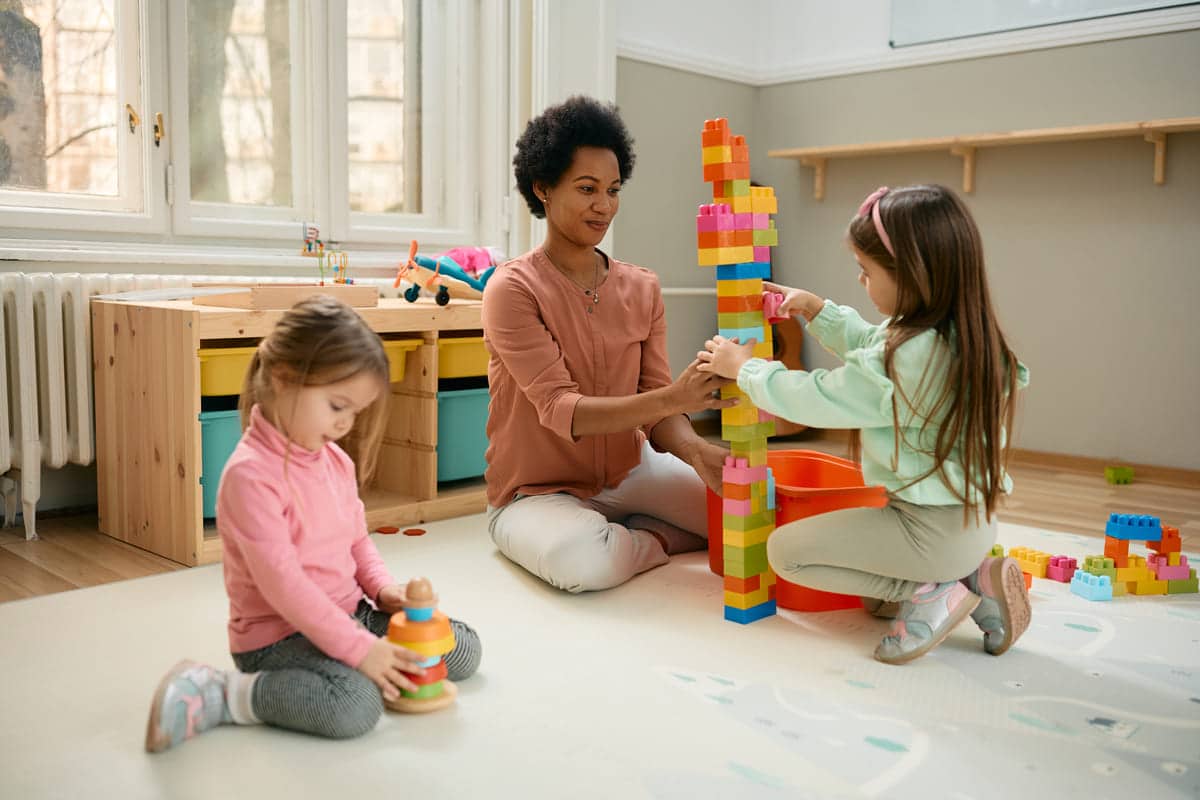
Besides the developmental benefits, building blocks offer other advantages for children, including:
- Enhancing Creativity: With no fixed instructions, children use their imagination to create something unique from building blocks. This unstructured play boosts creativity and helps them think outside the box.
- Promoting Concentration and Focus: As children build cooperative building projects, they focus on the task at hand, developing concentration skills. This skill can benefit them in other areas like schoolwork and extracurricular activities.
- Encouraging Independent Play: Building blocks can be a solo or group activity, allowing children to play independently or with others. This develops independence and self-confidence as they learn to make decisions and take control of their playtime.
- Affordable and Durable: Building blocks are an affordable toy option for parents, and they can withstand rough play. They are easy to clean, making them a practical choice for busy families.
What is the right age to introduce building blocks to your kids?
Introducing building blocks to your children at the right age can significantly contribute to their cognitive, social, and emotional development. However, each child is unique and develops at their own pace, so it’s essential to consider their individual interests and abilities.
- Early Introduction (6 – 12 months): At this stage, children begin to explore their environment and grasp objects. Simple block play can be introduced, where they learn to hold and feel the blocks.
- The Toddler Years (1 – 3 years): As toddlers, children start to understand the concept of construction play. They can stack blocks, knock them down, and begin to sort them by color or shape.
- Preschool Age (3 – 5 years): At this age, children become more creative with blocks. They start creating complex structures, using blocks to represent different items from their imagination.
- School Age (6 years and above): Older children engage in more intricate construction play. They create elaborate structures, often integrating block play with storytelling and role-playing.
However, playing with blocks is beneficial at any age, so don’t hesitate to introduce them to your child whenever they are ready. If children play with blocks at a young age, they will have more time to develop their cognitive and social skills, giving them a head start in their education.
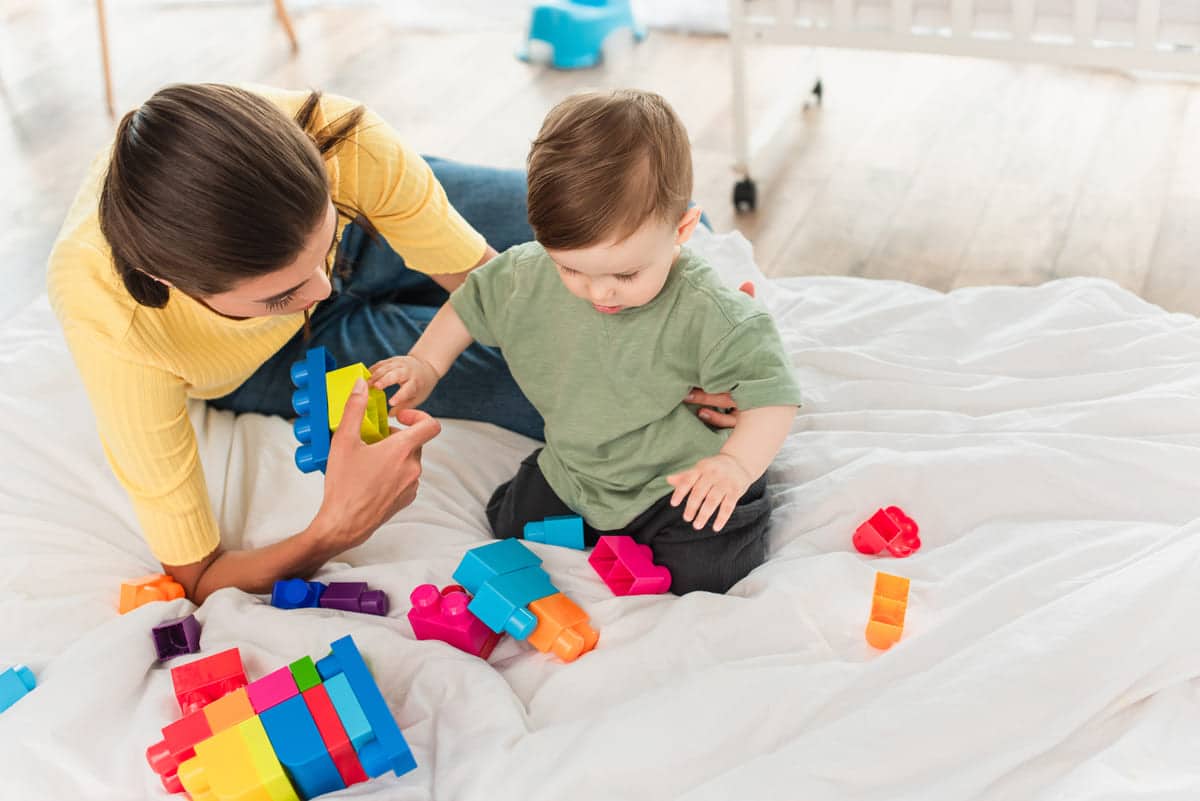
How Parents Can Maximize the Benefits of Block Play?
Maximizing the benefits of block play involves thoughtful selection of building blocks, engaging activities, and integration into a child’s daily routine. Here are some tips to help parents make the most of block play:
- Choose age-appropriate building blocks, taking into consideration your child’s interests and abilities.
- Encourage open-ended play by providing a variety of block types, shapes, and sizes to promote creativity and problem-solving skills.
- Integrate block play into everyday activities like storytelling, where children can use blocks to represent objects and characters in their stories.
- Encourage cooperative play by having siblings or friends work together on building projects, promoting teamwork and communication skills.
- Use block play as a tool for learning by incorporating concepts like math (counting), science (gravity), and language (naming shapes and colors) into playtime.
- Provide a designated space for block play, whether it’s a small table or an area on the floor, so children can easily access and engage in the activity.
- Rotate block sets periodically to keep playtime fresh and exciting, allowing children to explore different types of blocks and develop new skills.
- Play alongside your child, offering guidance and encouragement but also giving them the freedom to explore and create on their own.
- Celebrate your child’s creations, no matter how simple or complex, to boost their confidence and foster a love for learning.
Conclusion
To sum it up, block play offers numerous benefits to children, promoting their cognitive, social, and emotional development. It’s a versatile activity that can be enjoyed at any age and in various forms. By introducing building blocks to your child at the right age and providing engaging opportunities for play, parents can maximize the benefits of this timeless toy. So, go ahead and start building with your child today!
FAQs
Are building blocks safe for toddlers?
Yes, building blocks are safe for toddlers when appropriately chosen for their age group. Consider factors like size, weight, and material to ensure safety. Always supervise play to prevent accidents, such as knocking over block structures or swallowing small pieces.
Can a 2-year-old play with building blocks?
Yes, a 2-year-old can play with building blocks. It aids in their cognitive and motor skill development. However, ensure the blocks are age-appropriate, non-toxic, and used under supervision.
How block is useful in education?
Blocks are useful in education as they stimulate creativity, enhance problem-solving skills, and teach mathematical concepts. They also foster social skills during group play and improve fine motor skills.
Are wooden blocks safe for toddlers?
Yes, wooden blocks are safe for toddlers, provided they are smooth, non-toxic, and large enough to prevent choking. As always, supervision is key during play to ensure safety.

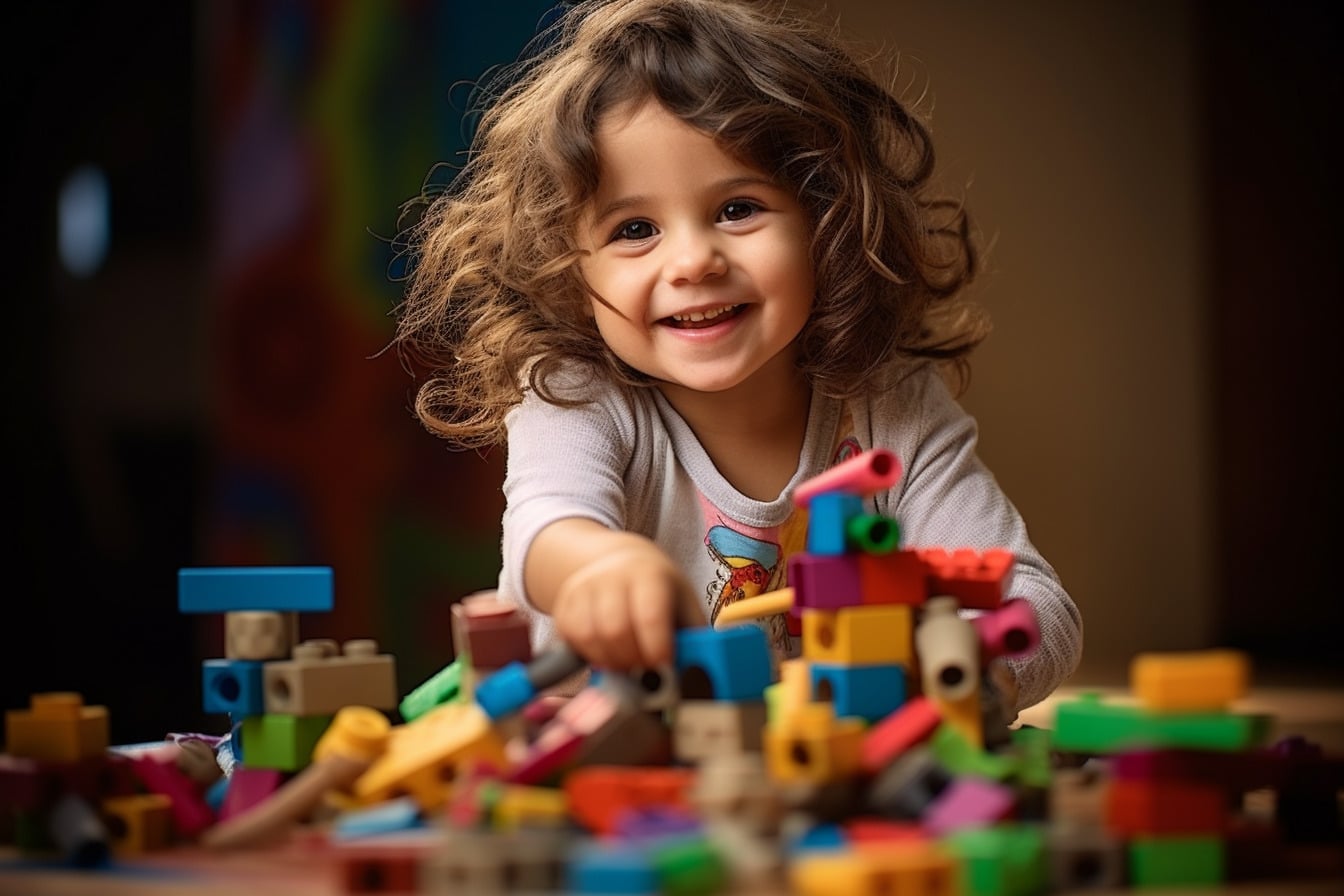
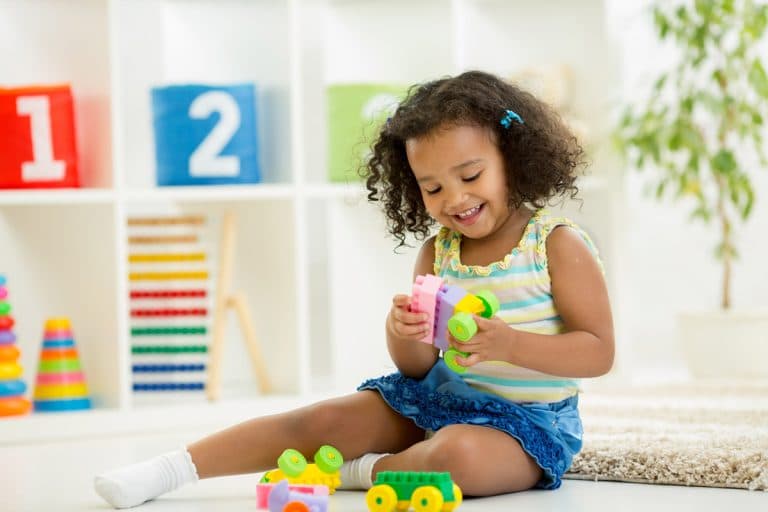
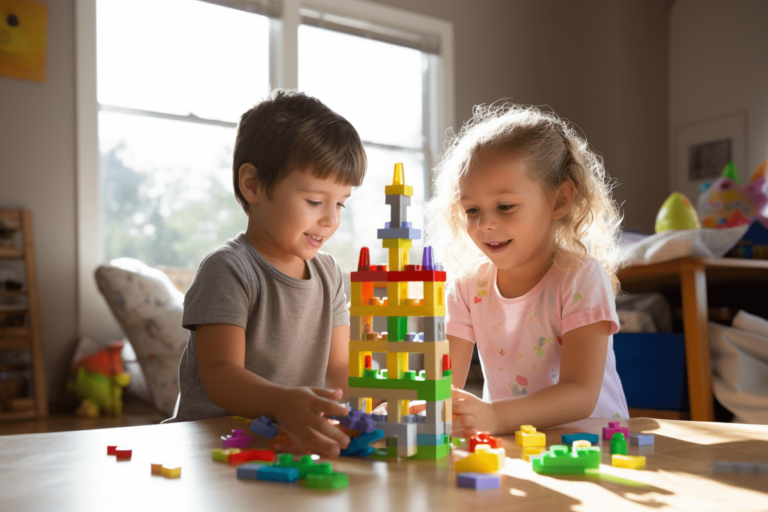
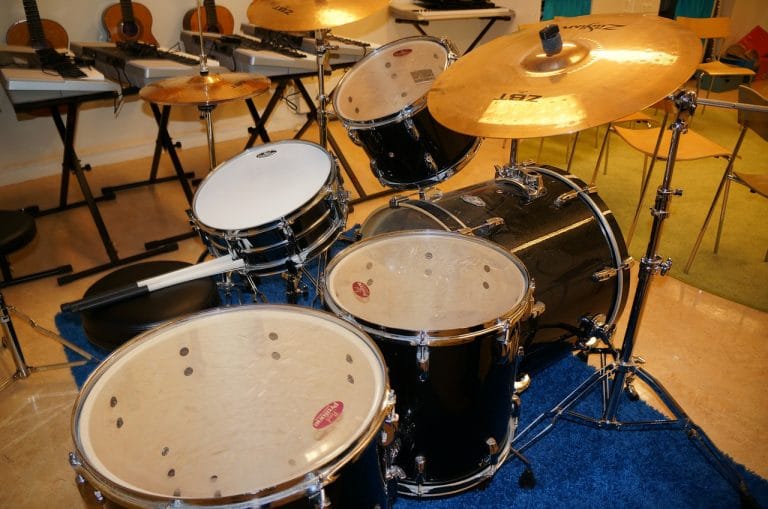
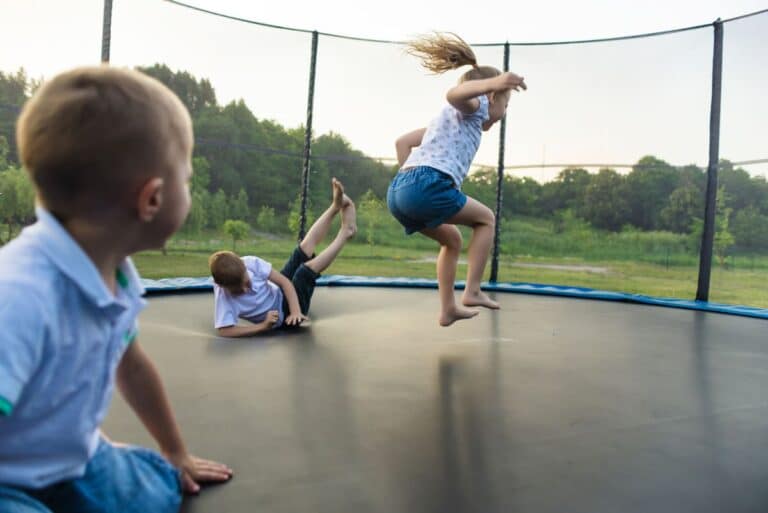




![Home Renovation Guide [2025]](/app/uploads/2021/04/design-hacks-1-378x300.jpg)
